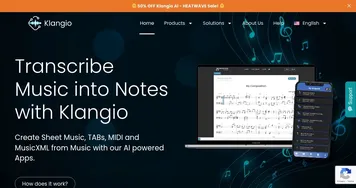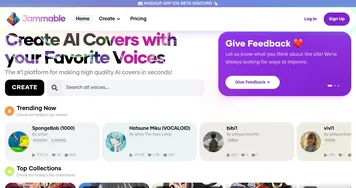Rev AI

I had a chance to test Rev AI for a couple of days, and it’s pretty solid — as it can handle chaotic audio files to a hyper-organized librarian who never sleeps. I uploaded a messy podcast recording — think overlapping voices, background noise, and my terrible habit of mumbling — and Rev AI’s Reverb model churned out a transcript so clean it practically sparkled. The platform’s claim of industry-leading accuracy isn’t just hype; it nailed accents and technical terms I didn’t expect it to catch, outperforming my brief flirtations with Otter and Descript.
The setup was straightforward, though I fumbled a bit with the API key integration — my coding skills are rusty, okay? Once I got rolling, the real-time transcription feature was a revelation. I fed it a Zoom call recording, and the text appeared almost as fast as my colleague’s coffee order. The diarization, which tags different speakers, was a lifesaver for sorting out who said what in a heated team debate. But, and here’s the rub, it wasn’t perfect. A few speaker labels got jumbled when voices overlapped, which meant some manual tweaking. Not a dealbreaker, but it’s like finding a typo in an otherwise stellar novel.
What caught me off guard was the sentiment analysis feature. I ran it on a customer feedback recording, and it flagged emotional undertones I hadn’t noticed — super handy for spotting unhappy clients before they churn. Compared to Google Cloud Speech-to-Text, Rev AI feels more polished for professional use, especially with its HIPAA compliance for sensitive data. However, Google’s broader ecosystem might be a better fit if you’re already knee-deep in their tools.
The pricing seems reasonable for occasional use, but I suspect high-volume users might wince at the per-minute costs compared to subscription models like Otter’s. My advice? Test the free trial to see if the accuracy lives up to your needs, and lean on the support team — they’re quick to respond. If you’re juggling multiple audio sources, Rev AI’s ability to handle diverse inputs makes it worth a spin, just don’t expect it to hold your hand through the setup.
Video Overview ▶️
What are the key features? ⭐
- Reverb ASR: Converts audio to text with high accuracy across diverse accents.
- Diarization: Identifies and labels multiple speakers in audio files.
- Sentiment Analysis: Detects emotional tone in transcribed content.
- Topic Extraction: Identifies key themes and topics within audio data.
- Language Identification: Automatically detects the language in audio inputs.
Who is it for? 🤔
Examples of what you can use it for 💭
- Legal Professional: Transcribes depositions and courtroom recordings for accurate documentation.
- Healthcare Provider: Converts patient consultations into text for medical records, ensuring HIPAA compliance.
- Media Producer: Transcribes interviews and podcasts for subtitles or content analysis.
- Market Researcher: Analyzes customer feedback calls to extract sentiments and key topics.
- Educator: Transcribes lectures for accessible notes Jolla, for accessible notes and multilingual student support.
Pros & Cons ⚖️
- Supports 36 languages
- Robust API integration
- HIPAA and GDPR compliant
- Requires technical expertise
- Costly for heavy users
FAQs 💬
Related tools ↙️
-
 Klangio
An AI-powered music transcription tool for musicians looking to convert audio into sheet music
Klangio
An AI-powered music transcription tool for musicians looking to convert audio into sheet music
-
 Udio
Music creation platform that allows users to generate original tracks based on their preferences
Udio
Music creation platform that allows users to generate original tracks based on their preferences
-
 MusicHero.ai
Generate original music tracks using simple text prompts
MusicHero.ai
Generate original music tracks using simple text prompts
-
 Jammable
Create AI covers with AI voice models of your favorite voices
Jammable
Create AI covers with AI voice models of your favorite voices
-
 Wondercraft
Turn existing content into captivating podcasts, effortlessly
Wondercraft
Turn existing content into captivating podcasts, effortlessly
-
 Podnotes
Repurpose your audio and video content into various written formats
Podnotes
Repurpose your audio and video content into various written formats

